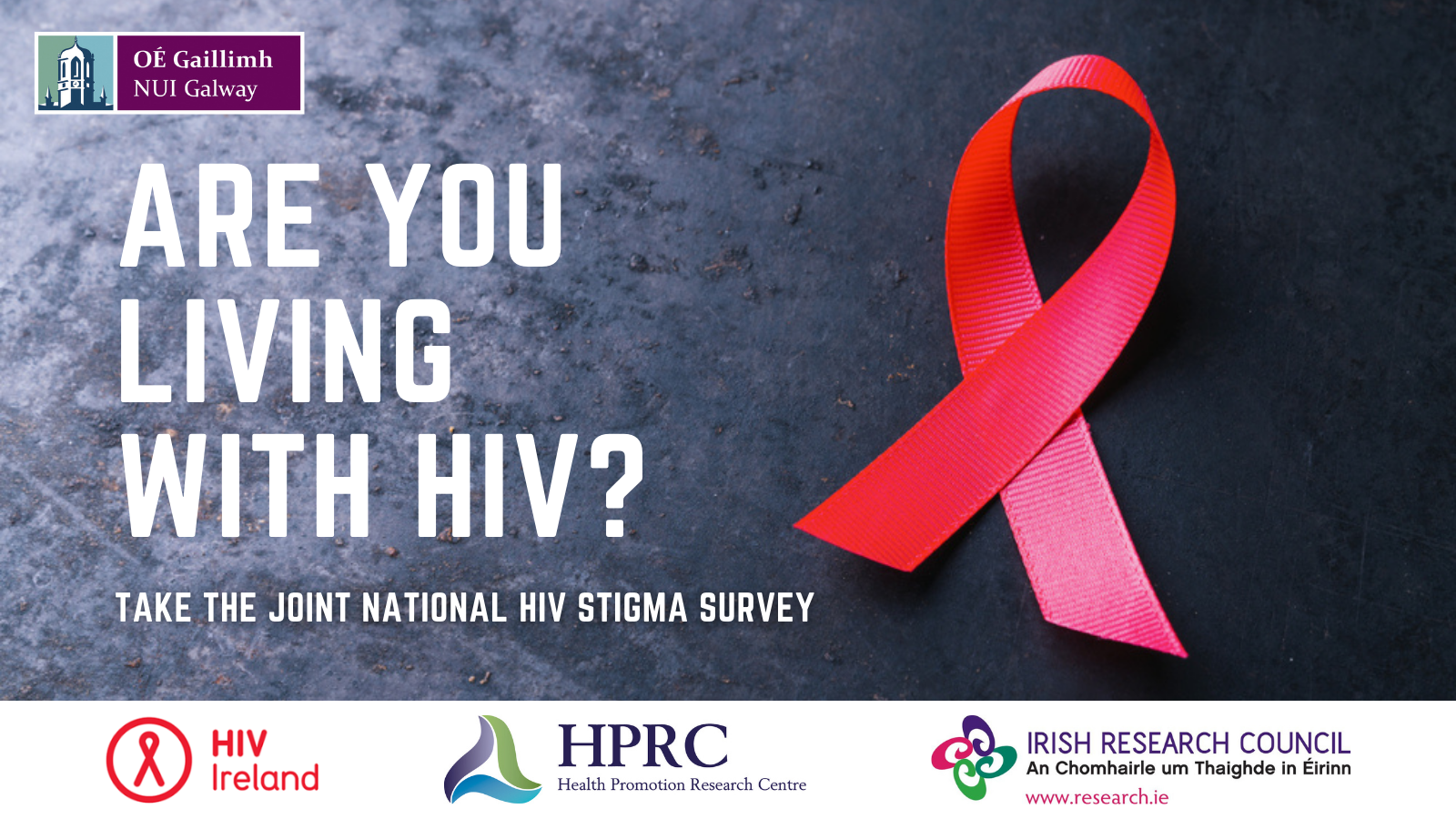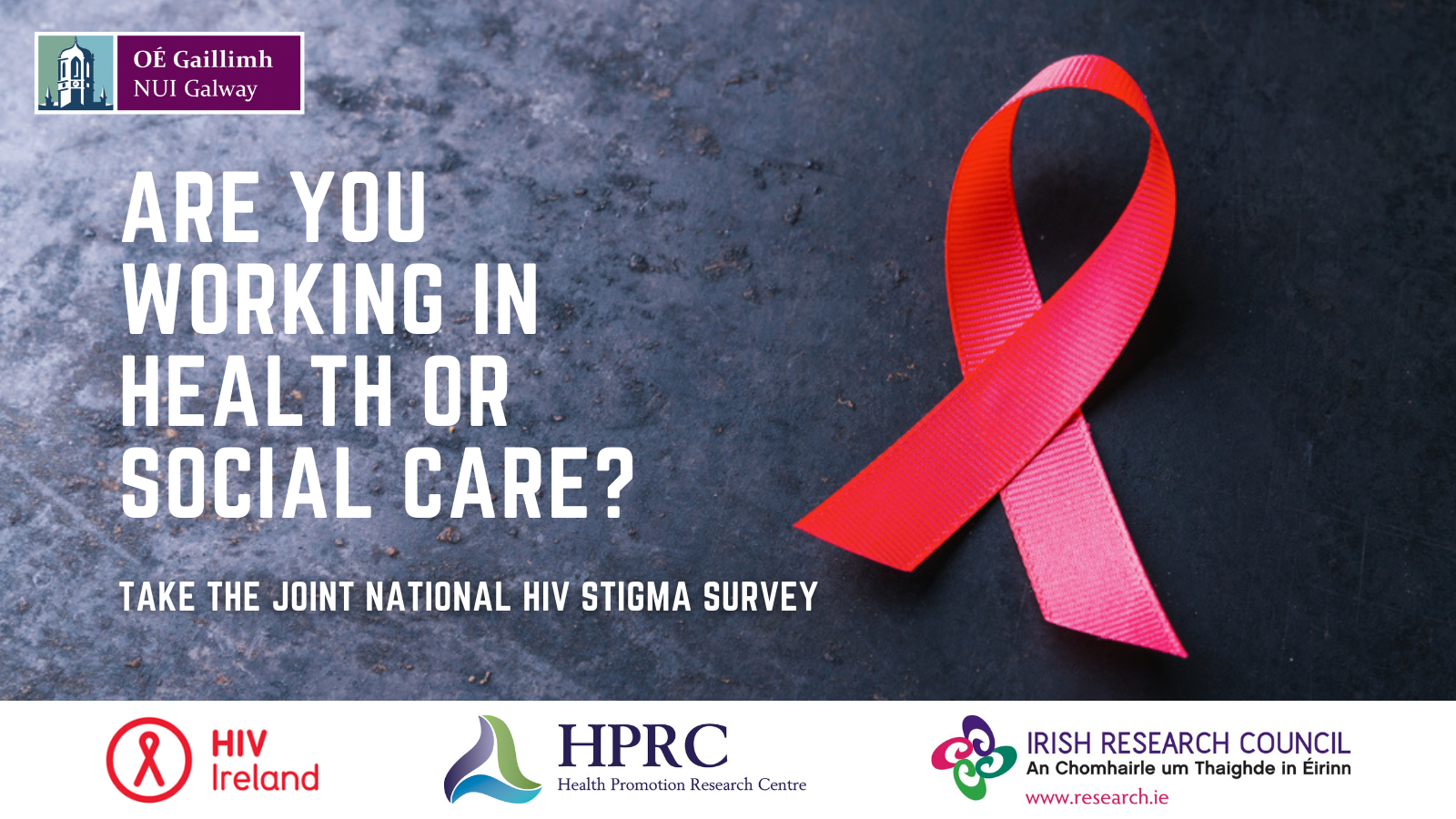NUI Galway launches first Joint National Survey on HIV-related Stigma in Healthcare Settings


Researchers at NUI Galway are aiming to use a national survey into HIV-related stigma in healthcare settings to tackle the issue and improve health outcomes for people living with HIV.
The first Joint National Survey on HIV-related stigma in healthcare settings means Ireland will be the first country in Europe to have this kind of national-level data.
The study is being launched this week by researchers at the Health Promotion Research Centre in NUI Galway. It can be accessed at www.nuigalway.ie/hiv-stigma-survey.
Dr Elena Vaughan is a post-doctoral researcher in the Health Promotion Research Centre in NUI Galway and is leading this research.
Her PhD research investigated HIV-related stigma in the Ireland. Specifically her work examined the relationship between media discourses of HIV and the stigma experiences of people living with HIV in Ireland.
Her research interests include HIV and stigma, LGBTQI+ health, social and structural determinants of health and rights-based approaches to health.
The survey is the first of its kind in Europe as the researchers seek to learn both from people living with HIV and also those who provide them with healthcare.
The survey will measure stigma in healthcare settings, and is part of a wider study to develop guidelines to reduce HIV-related stigma and improve healthcare outcomes for people living with HIV.
“This research will help us to get a sense of what the needs and priorities are - both of people working in healthcare and people living with HIV - so that a collaborative approach may be taken to address stigma in healthcare settings.
Approximately 7,000 people are living with HIV in Ireland.
“Experiences of stigma in healthcare settings can put people off engaging with healthcare services. This can have negative impacts on a person’s health. There is also evidence to suggest that stigma inhibits people from accessing testing and treatment, and so is a driver of the epidemic more broadly.”
Massive strides in the treatment of HIV mean that it is now easily managed with medication. People living with HIV are living long healthy lives and cannot pass on the virus when they are on effective treatment. However, stigma remains a serious problem for many people living with HIV, and this can affect their health and well-being
Reducing HIV-related stigma is widely acknowledged as a key part of addressing the HIV epidemic.

In 2019, Dublin, Cork, Limerick and Galway were signed up to the Fast Track Cities Initiative – a global collaboration between UNAIDS, International Association of Providers of AIDS Care (IAPAC), and 300 cities and municipalities worldwide. The objective is to work towards reaching zero new HIV infections, zero AIDS-related deaths, and zero HIV-related stigma and discrimination by 2030. Stigma reduction is also a stated aim of the Sustainable Development Goals, to which Ireland has also committed.
“Stigma in healthcare settings is among the key indicators recommended by UNAIDS to measure and evaluate the HIV response in individual countries. In addition to providing important information to help us reduce stigma in healthcare settings, the data generated from this project will be useful to programme and policy-makers in tracking progress in meeting commitments both to the SDGs and the Fast Track Cities Initiative. Ireland will be the first country in Europe that will have this kind of national-level data.”
The survey is being launched just ahead of Irish AIDS Day on 15th June and will be live for the whole month.
The project is supported by HIV Ireland and funded by the Irish Research Council.
